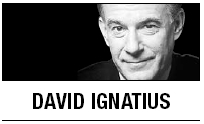WASHINGTON ― President Obama has been so low-key in his pronouncements about events in Egypt and Libya that it’s easy to miss the extent of the shift in U.S. strategy. In supporting the wave of change sweeping the Arab world, despite the wariness of traditional allies such as Israel and Saudi Arabia, Obama is placing a big bet that democratic governments will be more stable and secure, and thereby enhance U.S. interests in the region.
My own instinct, as someone who has been visiting the Arab world for more than 30 years, is that Obama is right. But given the stakes, it’s important to examine how the White House is making its judgments ― and whether intelligence reporting supports these decisions.
Though the White House’s response to these whirlwind events has sometimes seemed erratic, the policy, which has been evolving for many months, goes to the core of Obama’s worldview. This is the president as global community organizer ― a man who believes that change is inevitable and desirable, and that the United States must align itself with the new forces shaping the world.
An Israeli official visiting Washington recently sounded a note of caution: “We are too close to the eye of the storm to judge,” he said. “We need to be more modest in our assessments and put more question marks at the end.”
But the Obama White House doesn’t feel it has the luxury of deferring judgment; history is moving too fast. Says one official, “It’s a roll of the dice, but it’s also a response to reality.” If Obama has seemed low-key, he explains, it has been a calculated “strategic reticence” to send the message: This is your revolution; it’s not about us.
The roots of the policy shift go back to Obama’s first days in office and his feeling that America’s relationship with the Arab world was broken. Though Obama seemed to be accommodating the region’s authoritarian leaders, in August 2010, he issued Presidential Study Directive 11, asking agencies to prepare for change.
This document cited “evidence of growing citizen discontent with the region’s regimes” and warned that “the region is entering a critical period of transition.” The president asked his advisers to “manage these risks by demonstrating to the people of the Middle East and North Africa the gradual but real prospect of greater political openness and improved governance.”
Six months later, street demonstrations were toppling autocratic leaders in Tunisia and Egypt, who looked in vain for support from Washington. Obama didn’t come to the autocrats’ rescue because he believed the transformations were positive developments. “We have a core interest in stability through political and economic change. The status quo is not stable,” explains Ben Rhodes, a deputy national security adviser.
The democratic youth movement sweeping the Arab world offered an “alternative narrative” to the versions of Islamic revolution put forward by Iran and al-Qaida, says Rhodes. If this change scenario can succeed, threats to America will be reduced.
The White House studied past democratic transitions in Indonesia, the Philippines, Serbia, Poland and Chile for “lessons learned.” Officials noted that national security adviser Tom Donilon was reading former Secretary of State George Shultz’s account of the peaceful ouster of Ferdinand Marcos in the Philippines.
This review has led U.S. officials to conclude that countries need to: bring the opposition quickly into the transition to achieve “buy-in”; make fast changes that people can see, such as freeing political prisoners; and sequence events, putting the easiest first, so that presidential elections precede parliamentary balloting and detailed rewriting of the constitution.
How well does this idealistic agenda match up with ground truth? In recent interviews, intelligence analysts said that Islamic extremists don’t seem to be hijacking the process of change. There are near-term tactical dangers, said one counterterrorism analyst, such as the escape of prisoners in Egypt and the potential weakening of the intelligence service there. But this official says there’s no evidence that al-Qaida has been able to take advantage of the turmoil. It took a week for Ayman al-Zawahiri, the group’s No. 2 official, to publish his windy and out-of-touch analysis of events in Egypt.
Change will have its downside, but a second U.S. intelligence analyst offers this estimate: “This is a world we can live with. Our relationship with Egypt may be different and rockier, but I don’t think it will be inherently hostile.” As for the much-feared Muslim Brotherhood, it is currently planning to run parliamentary candidates in only 150 of Egypt’s 454 districts, and no candidate for president.
By David Ignatius
David Ignatius’ e-mail address is davidignatius@washpost.com. ― Ed.
(Washington Post Writers Group)






